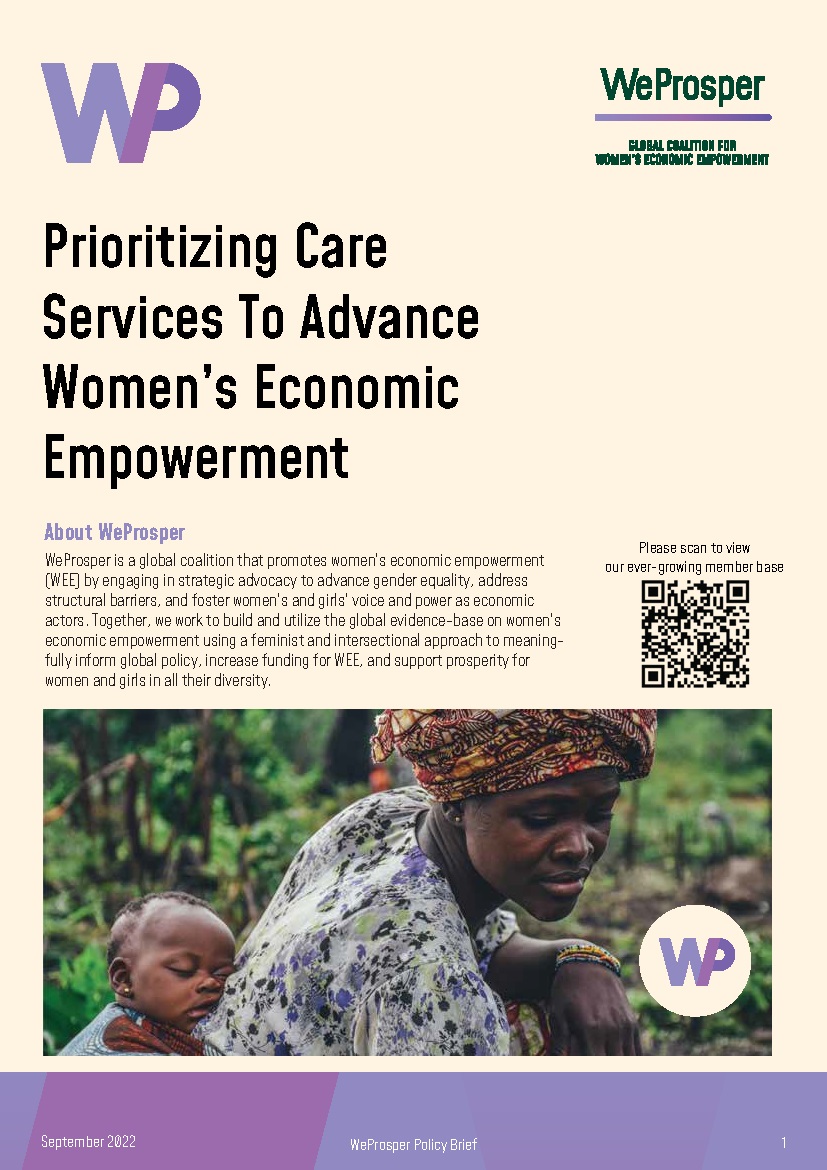
WeProsper: Prioritizing Care Services To Advance Women’s Economic Empowerment
 Care work has long been gendered across geographies and cultures around the world, with both domestic unpaid and more formal paid care responsibilities falling disproportionately on women and girls, ultimately serving as a barrier to their overall empowerment and rights. This is particularly the case in low- and middle-income countries (LMICs), where 75 percent of unpaid care and domestic work is done by women, and where women end up providing up to 90 percent of long-term care, generally unpaid.
Care work has long been gendered across geographies and cultures around the world, with both domestic unpaid and more formal paid care responsibilities falling disproportionately on women and girls, ultimately serving as a barrier to their overall empowerment and rights. This is particularly the case in low- and middle-income countries (LMICs), where 75 percent of unpaid care and domestic work is done by women, and where women end up providing up to 90 percent of long-term care, generally unpaid.
The evidence is clear: if quality and affordable care services are provided and care needs are better addressed through policy and financing, women’s economic empowerment, justice, and rights will advance. Investments must increase and be better targeted to fully address the global care crisis and ensure progress toward a sustainable and inclusive economic recovery. Consideration of the underlying structural barriers to women’s economic empowerment within care work is critical.
This brief outlines takeaways from a recent research synthesis on care services conducted by WeProsper around childcare and long-term care (LTC), which encompasses eldercare and care for those with disabilities, and makes key recommendations for policymakers and donors seeking to advance global women’s economic empowerment (WEE).
Click below to download the policy brief, and to access the research synthesis in: English | Swahili – Kiswahili | French – Français | Spanish – Español| Hindi – हिन्दी |
WeProsper (2022). Prioritizing Care Services To Advance Women’s Economic Empowerment. Washington, D.C.
